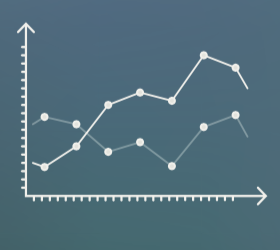11.21.2025
Sausage casings bulletin, November 21, 2025

...

Blending economics improved as heating oil followed crude higher, rising nearly three cents per gallon to $2.0863. Rising soybean oil prices offset much of this move. Soybean oil climbed 24 ticks to 27.24 cents per pound for July delivery. The bean oil/heating oil spread improved by a penny, reaching a credit of 8.4 cents per gallon. California’s LCFS credit continues to hold in the upper $180’s and Oregon’s LCFS credit is offered at $160.
The Jacobsen B100 Index advanced a penny this week, moving from 2.738 to 2.747 per gallon.
From the Oregon Department of Environmental Quality:
The Oregon Department of Environmental Quality today announced it will hold a Credit Clearance Market beginning June 1 for participants in the Clean Fuels Program that have not yet met the 2018 credit compliance deadline. More than 99 percent of obligations have been met, but the Market will support the remaining regulated parties offering a last opportunity to reconcile accounts.
The Credit Clearance Market operates separately from the normal year-round market for credits and is designed to strengthen the Clean Fuels Program by setting a maximum compliance cost, thus reducing the possibility of credit price spikes, and maintaining the incentive to invest in low-carbon fuel production and distribution. It also limits the price for credit sales at the end of a compliance period, thereby capping the annual cost of complying with the program.
Currently, there are more credits pledged to the Market than what are needed to meet outstanding compliance obligations. Leftover credits will be returned to parties that pledged them after the Market closes.
In 2018, the Clean Fuels Program achieved its most successful year thus far, displacing more than 225 million gallons of gasoline and diesel. Electricity, natural gas and propane all saw increased use and conversion to more renewable resources. In addition, ethanol and biodiesel continue to get cleaner, falling to their lowest average carbon intensity levels in 2018’s fourth quarter. More than 420,000 credits valued at almost $34 million were traded. Overall, the program has reduced 2.7 million tons of greenhouse gas emissions since 2016.
Perhaps cautious, as the market continues to search for an equilibrium price level following the April regulators meeting. The average price paid per credit was unchanged this week at $183, which might be signaling some price stability. Second quarter volume is 43 percent over first quarter volume six weeks into the new period. Despite volatile swings in weekly credit volume, second quarter volume is unchanged relative to the second quarter of 2018. Weekly credit volume increased 0.14 percent, or 76 credits, from the previous week but is 56 percent below the same weekly period last year. Average weekly credit volume decreased from 214,193 to 205,762.
Trading activity was heaviest on Monday May 6, with 74 percent of the trades taking place. The highest average daily price was $185, which occurred on Tuesday. The price range credits traded in expanded from $144 – $192 the week prior to $100 – $188. This week’s price range is deceptive, as the $100 trade was the only trade to occur under $159. The weighted-average credit price was $183.21, unchanged from the week prior. At the top of the range 10,000 credits traded and 128 traded at the bottom of the range. 91 percent of the credits traded at a price of $180 or above, 9 percent traded below $180.
The Jacobsen expects credit volume to continue to rise relative to last year. An additional 284 million gallons of biodiesel and renewable diesel are forecast to be produced during 2019. There were 11.18 million LCFS program credits generated during 2018 and there are 13.7 million forecast for 2019.
CARB only includes transfers that are completed in the given week. Transfers for future dates, proposed and still pending confirmation, are excluded. CARB’s weekly report excluded 7 transfers of 16,895 credits. CARB will exclude transfers that trade at, or near, zero in price.
May 02 (Ethanol Producer Magazine) Letter asks EPA to use RFS reset rule to lower ethanol RVOs – A group of 15 senators, led by Sen. Jim Inhofe, R-Okla., sent a letter to U.S. EPA Administrator Andrew Wheeler April 30 asking him to use the agency’s upcoming Renewable Fuel Standard reset rule to limit future renewable volume obligations (RVOs) for conventional biofuel to less than 10 percent of projected gasoline demand. In response to Inhofe’s letter, the Renewable Fuels Association is calling on the EPA to use the RFS reset rule to reallocate lost volumes associated with small refinery exemptions (SREs) and increase conventional biofuels beyond 15 billion gallons annually. READ MORE
Apr 22 (NationalObserver) Shell aims to lead Big Oil in pivot to clean energy – Shell admitted in 2016 that peak oil demand might be just around the corner. The company set a goal of cutting the carbon footprint of its energy products in half by 2050, with an interim goal of 20 per cent by 2035. Shell has set these targets in partnership with Global Action 100+, representing $32 trillion in assets, and The Institutional Investors Group on Climate Change. READ MORE
Apr 15 (Jakarta Post) RI to accelerate B30 program in anticipation of EU restrictions – The government has said Indonesia will accelerate the mandatory use of 30 percent blended biodiesel ( B30 ) in anticipation of the European Union’s move to ban palm oil-based biofuel in its member countries. With the mandatory use of both B20 and B30, the domestic market is expected to absorb 9 million tons of crude palm oil (CPO). READ MORE
I always look forward to hearing from our customers. Please feel free to contact me with any questions, comments, or suggestions you may have. If you buy, sell, or trade any of our products, I would like to hear from you. Bob Lane at [email protected] 847-549-3640.